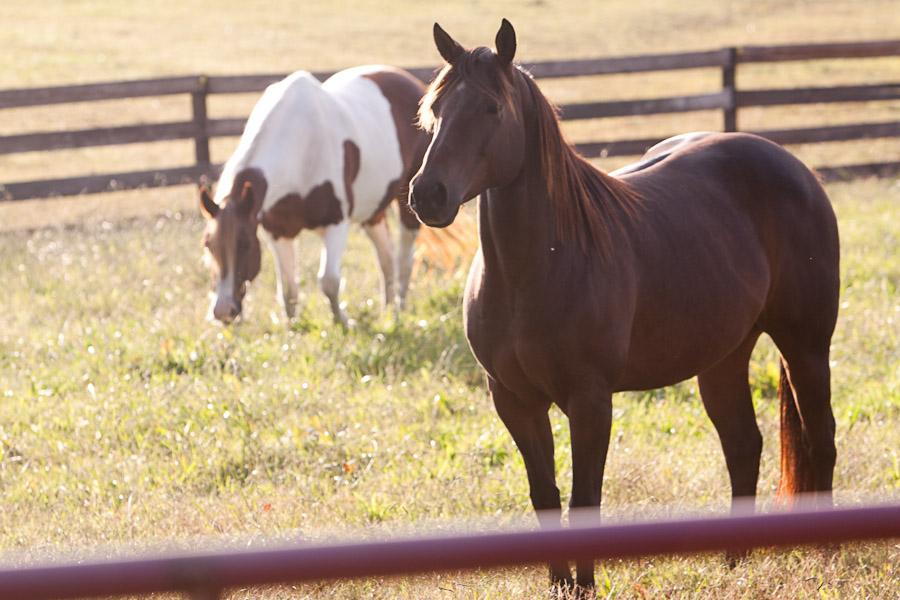Caring For The Senior Horse
- posted: Mar. 03, 2022
Advances in nutrition, management and health care are helping, horses are living longer, more useful lives. It’s not uncommon to find horses and ponies living well into their 20s and 30s!
While genetics play a role in determining life span, you too, can have an impact and help your horse thrive in their golden years through proper management.
You may think that turning your old-timer out to pasture is the kindest form of retirement. But horses are individuals. Some enjoy being idle; others prefer to be a part of the action. Whatever you do, don’t ignore the horse. Proper nutrition, care and exercise will help the animal thrive.

Below are helpful guidelines to develop a total management plan for your older horse:
- Observe your horse on a regular basis. Watch for changes in body condition, behavior and attitude. Address problems, even seemingly minor ones, right away.
- Feed a high-quality diet. Avoid dusty and moldy feeds.
- Feed your older horse away from younger, more aggressive ones so it won’t have to compete for feed.
- Feed at more frequent intervals so as not to upset the digestive system. Two to three times daily is best.
- Provide plenty of fresh, clean, tepid water. Excessively cold water reduces consumption, which can lead to colic and other problems.
- Provide safe and adequate shelter to protect from elements and bugs.
- Arrange for routine dental care so that they are able to chew feed properly.
- Arrange for regular hoof care to prevent and injuries or lameness.
- Also keeping them in mild work provide flexibility, mobility, and muscle tone.
- Adjust and balance rations to maintain proper body conditions. A good rule of thumb is to be able to feel the ribs but not see them.
- Provide adequate, appropriate exercise to maintain muscle tone, flexibility and mobility.
- Groom your horse frequently to promote circulation and skin health.
- Be aware that older horses are prone to tumors. Look for any unusual lumps or growths from head to tail as well as beneath the tail (especially on gray horses).
- Schedule routine checkups with your equine veterinarian. Call immediately if you suspect a problem.
Although there is much you can do to keep your older horse happy and spry, some conditions associated with aging require medical intervention. Scheduling regular visits and keeping a good line of communication with your veterinarian will allow you to respond quickly to ailments or injuries that could cause your horse a serious or prolonged set back. That means less worry for you, and a better quality of life for your old friend!
Carolina Equine Hospital
Ready to schedule a wellness visit for your horse? Give us a call (336-349-4080) any time Monday through Friday between 8am and 5pm to get on the schedule!
Location
Find us on the map
Browns Summit Location
5373 NC Hwy 150
Browns Summit, NC 27214, United States

